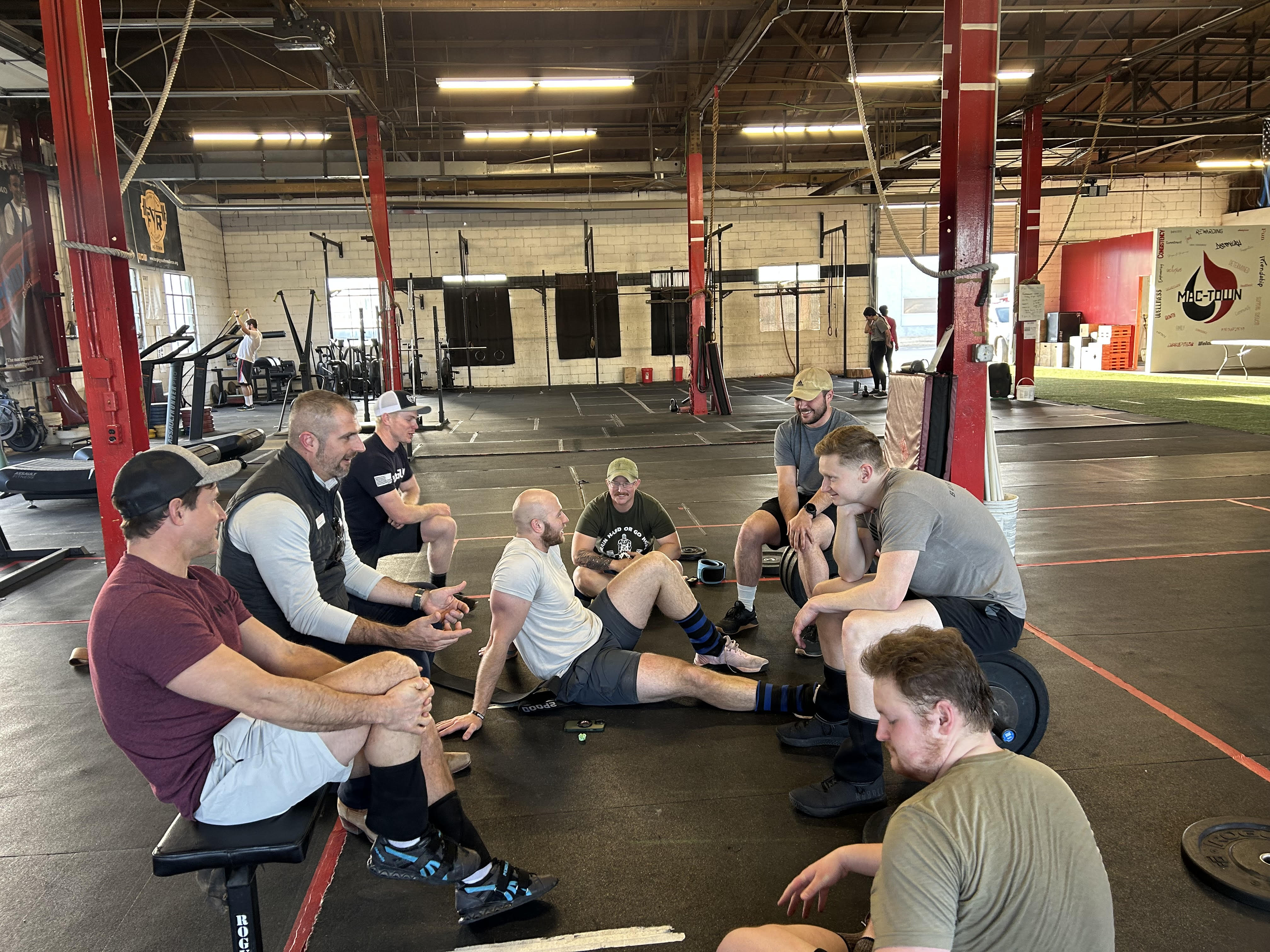CrossFit introduced a whole new culture within fitness in a far reaching way that had not been done before. Sport. Competition. A means and method to measure fitness and therefore a means to make it competitive. This birthed the emergence of local competitions and bigger stages emerged with opportunities for people to enjoy competition in a new sport. And this at times has created a question for some: “to compete or not to compete?”
Competition can also come in daily form in the gym, with a focus on improving and progressing. This tends to be more common in the fitness space. That daily competition with self or others is part of the conversation and a valuable one to include when we talk about the positives and pitfalls of competition.
There are many perceptions of competition. Some that view it as good and some that view it as bad. So, let’s take a look at the good and potential pitfalls - because you will never hear me say that competition in itself is bad.
When it comes to competition, we have a couple options to think about - daily (strength or conditioning) and organized competition events. Each day you go to the gym, you have the option to ‘compete’ in workouts. We also have formal competitions that occur on specific dates. So, let’s take a look at both of these things separately.
When it comes to daily competition, if you are a naturally competitive person, this comes easily most of the time. You may naturally experience a greater sense of energy when you're competing with a previous time or a fellow gym goer. This was the very thing that Greg Glassman was drawing upon when he came up with the notion to train people in groups. Competition drives intensity and as we know, intensity drives results.
So, what are the pitfalls of daily competition? Generally, the major problems are derived from forsaking our foundational requirements of mechanics first. Some will say things like I went too heavy or I went too fast. But, those things can only be a problem if we lose our mechanics or the intended stimulus for the day. My recommendation here is to compete but recognize that competing is not a license to be reckless or forsake the overall goal of the workout. Another issue of daily competition, can be on the mental/emotional side. On one side, it never feels good to “lose.” If in competing you view yourself as the loser or always "failing", that can be very disheartening. Here I encourage people to leverage the competitive aspect to help improve your performance. Not necessarily to “win”, but to push themselves more than they would alone. This isn't a fail or succeed moment per say. It's a opportunity to leverage those around you to improve your own fitness level. That's a win for you no matter how the leaderboard shakes out. This can look like pushing someone to not only move faster or heavier, but BETTER, also. Hold each other accountable to the first pitfall of not losing mechanics and hitting the stimulus by scaling or modifying as recommended will keep competition positive and effective!
Then, we have the formal competitions. These can be a lot of fun and sometimes very demanding. Some worry about volume and/or potential injury. But, here again, I go back to what I said earlier, it only becomes a problem, when you start to forsake your mechanics. I realize that this can happen very easily, especially in the heat of the moment. But, in my opinion, it is not something you need to fear, just something to be aware of. Then, there is the volume aspect. This can be warranted, especially in one-day competitions where often there is a lot packed in. This also can be managed in a very positive way as well - one by preparing your body with a little extra volume. It doesn’t take as much as you might think. And, again, this is where taking a good amount of time to recover afterwards really matters. This is true both during your build-up (preparation) and post-competition.
Lastly, I want to talk about the motivation factor of having something on the calendar. In Glenn Pendlay’s book “American Weightlifting,” he talks about having his new athletes sign up for a competition as soon as possible. Why? Because it creates a short-term goal. It creates accountability. And, it promotes motivation. It’s not necessarily about how you perform at that competition that matters in the long run. But, having something to prepare for is a great way to stay consistent with your training, which is the biggest key to improve your health and fitness for a lifetime. So, embrace competition for all that it can do for you. If you’re competition curious, let us know! We understand that it can be a daunting thought or approach and we love working with clients through the daily challenges of it or maybe the bigger goal of a local comp!
What say you? Competition drives you or scares you??






